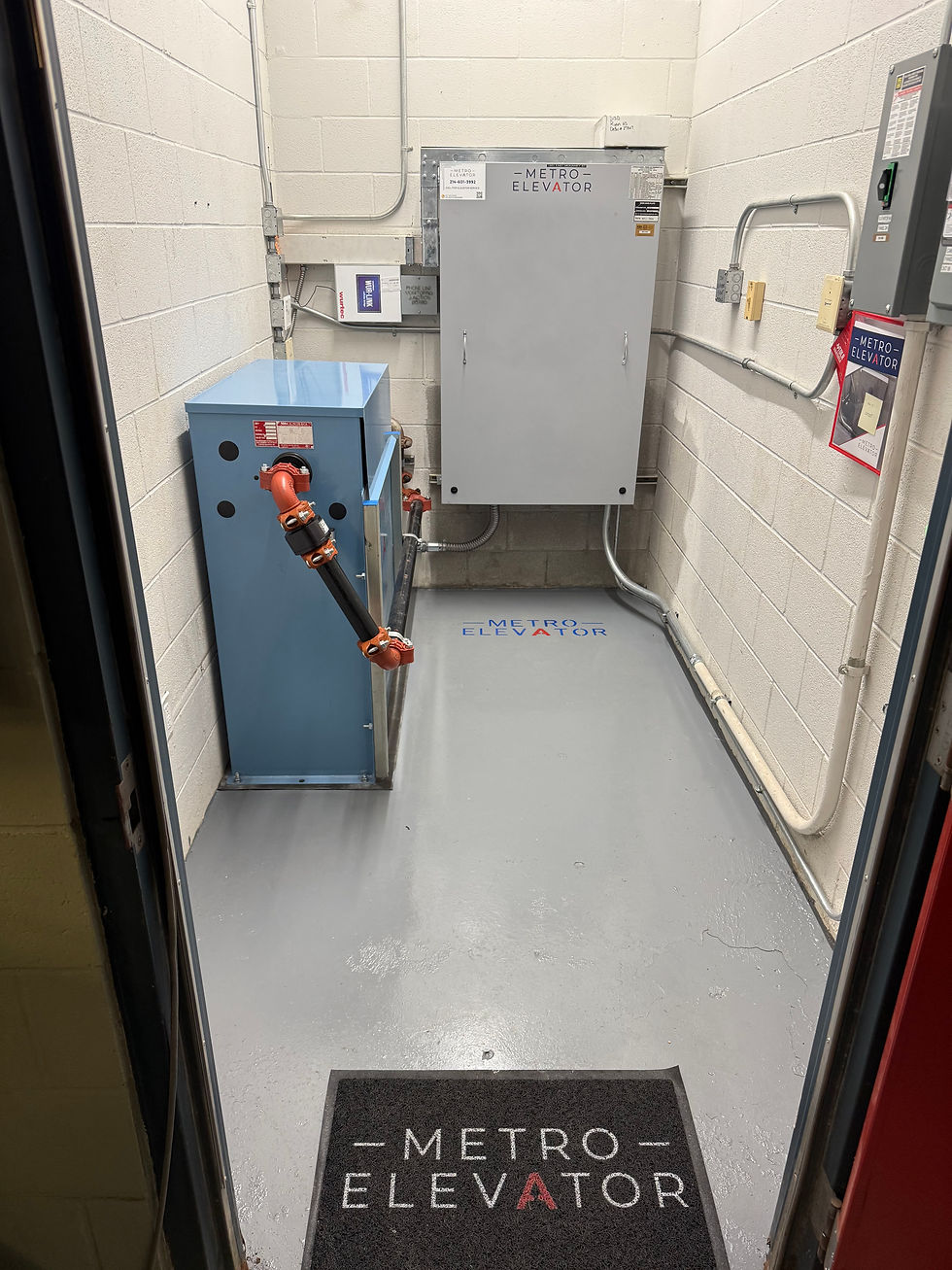5 Warning Signs Your Elevator Needs Immediate Servicing
- Frank Smith

- Sep 18, 2025
- 4 min read
Elevators are critical to building operations, keeping tenants, visitors, and staff moving safely and efficiently throughout the day. Because they’re so reliable, it’s easy to take them for granted until something goes wrong.

For building owners and property managers, elevator downtime can mean frustrated tenants, compliance headaches, and costly emergency calls. The truth is, most elevator issues don’t happen suddenly. They begin with small, often overlooked warning signs.
Catching these signs early can help prevent breakdowns, safety hazards, compliance violations, and expensive repairs. Below are five key warning signs that your elevator may need immediate servicing.
Unusual Noises During Operation
A well-maintained elevator should run smoothly and quietly. If you hear grinding, squealing, banging, or rattling during operation, it’s a clear red flag. These sounds often point to mechanical wear, poor lubrication, or issues with critical parts such as cables, motors, or drive systems.
It’s important to treat unusual sounds as early warnings, not just nuisances. Ignoring them can lead to major failures that put both safety and compliance at risk.
Slower or Delayed Movement
Has your elevator started taking longer to arrive, or does it feel sluggish between floors? Delays like these often signal performance decline. Common causes include aging motors, worn relays, or faulty controllers.
Comparing current performance to the elevator’s original operation can reveal if service speed has dropped over time. Unfortunately, this is one of the most overlooked warning signs, even though it often points to developing mechanical issues that need attention.
In some cases, slow performance may also signal that your system is approaching obsolescence, making modernization a smart long-term solution.
Door Operation Issues
Elevator doors are the most used component of any system and one of the most prone to problems. Warning signs include doors that open or close slowly, noisily, or inconsistently. Malfunctions may be caused by failing operators, faulty sensors, or debris in the tracks.
Not only can poor door performance trigger shutdowns, but it can also create passenger hazards. Regular preventive maintenance is the best way to keep door systems reliable and safe.
Misleveling or Inconsistent Floor Alignment
Misleveling occurs when an elevator stops slightly above or below the floor threshold. Even small misalignments create trip hazards, pose accessibility concerns, and may violate ADA compliance requirements.
Possible causes include brake wear, malfunctioning sensors, or hydraulic imbalance. While misleveling might look like a minor nuisance, it’s a serious safety risk that requires professional servicing right away.
Unexpected Shutdowns
If your elevator suddenly shuts down, displays error messages, or leaves passengers stranded, don’t dismiss it as a fluke. Unexpected stops are often linked to electrical faults, overheating, or safety circuit failures.
Even if the elevator resets and runs again, repeated shutdowns are signs of deeper issues that require expert diagnosis. A professional inspection can uncover whether the problem is isolated or systemic. If your elevator has experienced a shutdown, don’t delay. Our team at Metro Elevator provides fast repair services to get you back in service.
Why Acting on Elevator Warning Signs Matters
Ignoring elevator warning signs doesn’t just inconvenience tenants and visitors. It creates serious risks:
Safety hazards that can lead to injuries.
Compliance violations, including common elevator building code violations.
Tenant complaints and damage to your building’s reputation.
Costly emergency service calls when small issues turn into big failures.
By taking action early, you can reduce liability, extend the life of your equipment, and avoid unnecessary disruptions through preventive maintenance.
When to Call a Professional for Elevator Servicing

Don’t wait until a complete breakdown occurs. If you notice any of these five warning signs, it’s time to call a licensed elevator technician. Proactive servicing can catch problems before they escalate and provide benefits like:
Smoother, more reliable elevator operation
Improved safety and reduced liability
Ongoing compliance with elevator safety codes
At Metro Elevator, we don’t just perform routine maintenance, we also take the time to check in with our customers during every visit. Our technicians will review how your elevators are performing, address any concerns you’ve noticed, and ensure potential issues are identified before they become costly problems. For example, if you’ve heard unusual noises, noticed slower performance, or experienced inconsistent doors, let your technician know. Sharing these details helps us get ahead of problems quickly and keep your elevators running at their best.
Setting up a recurring maintenance plan is one of the best ways to keep your elevators operating safely and efficiently. If you’ve noticed one or more of these five warning signs in your elevators, it may be best to modernize now. For more insight, check out our blog on CapEx Planning for Elevators: Best Practices to Maximize ROI.
Contact Metro Elevator Today
Don’t wait until it’s too late. Metro Elevator’s team of licensed technicians is here to provide inspections, maintenance, and repair solutions tailored to your building.
Schedule a free consultation today to protect your tenants, avoid costly breakdowns, and keep your building compliant.
_________________________________________________________________________
Frank Smith is the President of Metro Elevator Florida and brings nearly two decades of experience in the elevator industry to his clients. Learn more about Frank and his team.



